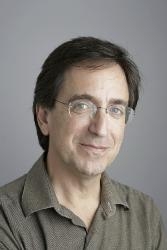The Environmental Science, Policy and Engineering Winter Seminar Series continues Thursday, Feb. 23, with Andrew Revkin, science journalist and blogger for the New York Times.
Revkin's talk, "Building a Knowosphere to Conserve Our Only Sphere" begins at 7 p.m. in the Nott Memorial.
The theme of this year’s interdisciplinary series is “New York’s Energy Future.” The series is sponsored by the Environmental Science, Policy and Engineering (ESPE) program, with support from the Mellon Foundation.
A noted science journalist, Revkin also blogs on sustainability issues at The New York Times Dot Earth, as well as teaches at Pace University. He presents an optimistic, yet realistic, exploration of ways to fill the information and innovation gaps left by shrinking mainstream media, a divisive blogosphere and strangled public budgets.
He proposes that nurturing the 'knowosphere,' which is the fast-spreading global sheath of ways to share and shape ideas, will enhance public understanding of the increasingly human-dominated planet and foster constructive discussion and action aimed at fitting our infinite aspirations on this finite planet.
The 15th annual Speaker Series kicked off Jan. 18 with a talk by William Schlesinger, a prominent carbon biogeochemist and president of the Cary Institute of Ecosystem Studies in Millbrook, N.Y. Frank Abate, vice president of Renewable Energy at General Electric in Schenectady, was also a featured speaker.
The final speaker in the series (also at the Nott, 7 p.m.):
Wednesday, Feb. 29: Kathleen Segerson, professor of economics at the University of Connecticut and a member of the Environmental Protection Agency’s Science Advisory Board. Segerson’s research focuses on the incentive effects of alternative environmental policy instruments, including applications in groundwater contamination, hazardous waste management, workplace accidents, land use regulation, climate change and nonpoint pollution from agriculture.
